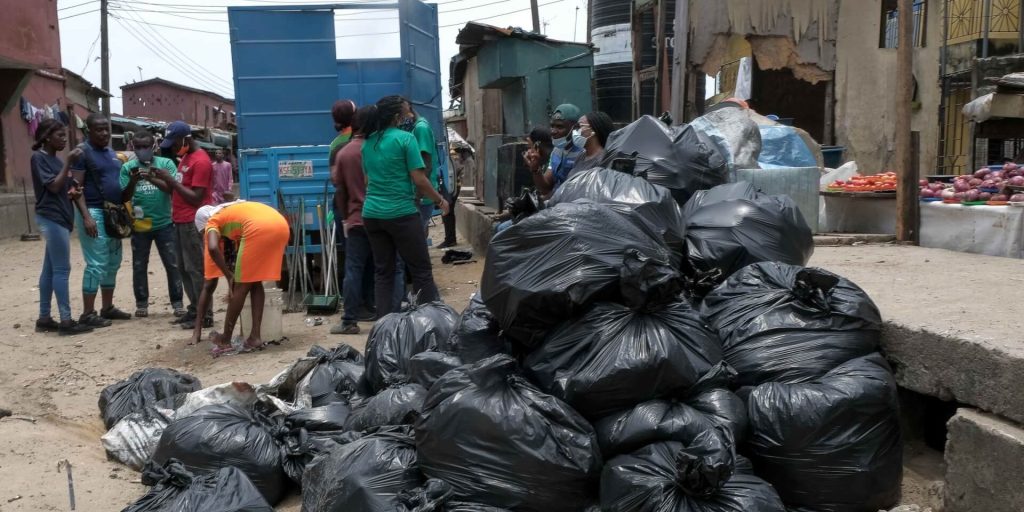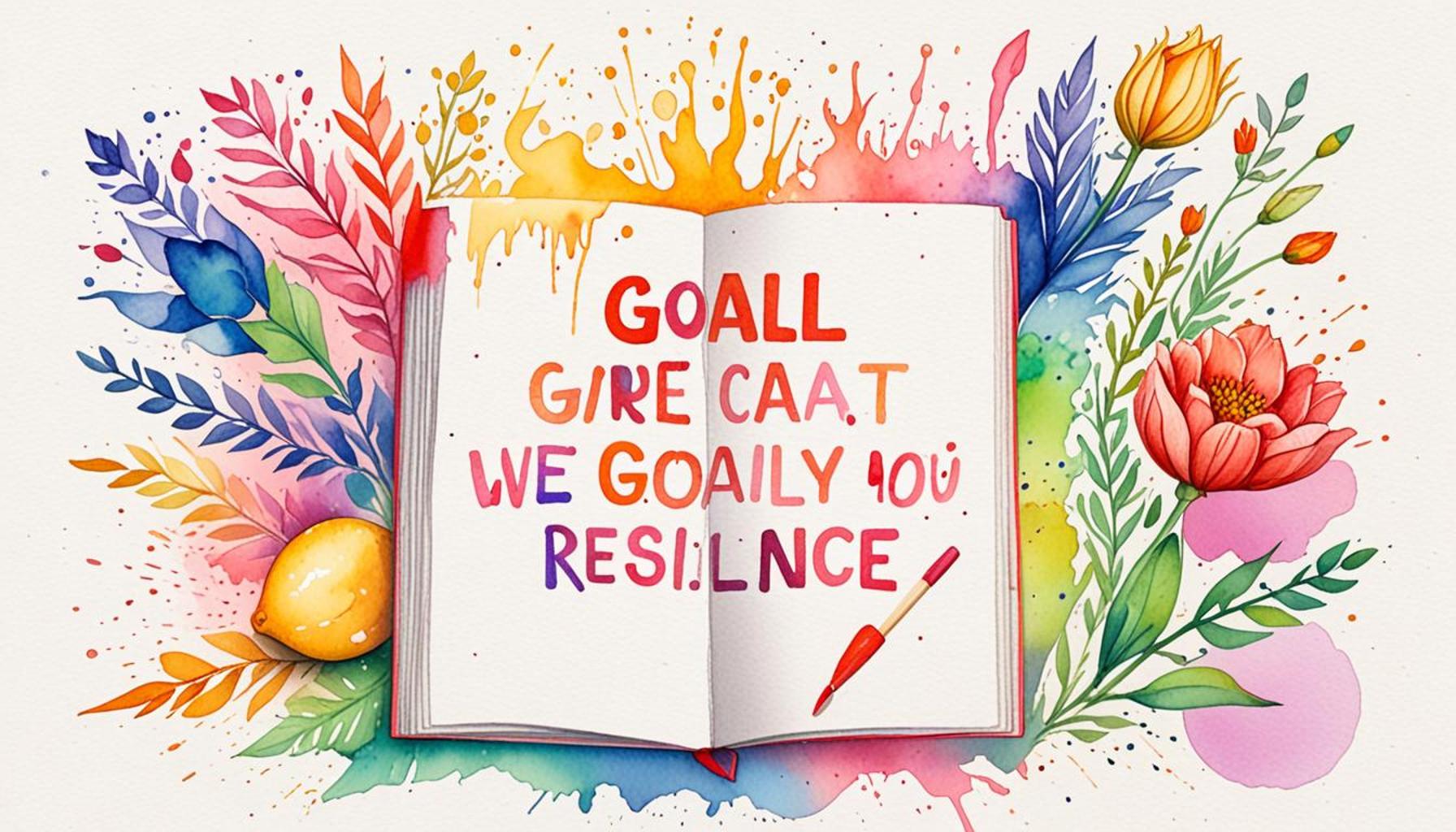How Goal Setting Can Promote Sustainability in Community Projects in Nigeria

Goal Setting as a Catalyst for Community Development
In Nigeria, where communities grapple with the effects of environmental degradation and social inequality, the principle of goal setting stands out as a vital tool for fostering a resilient and thriving society. By engaging in structured goal setting, communities gain clarity in their objectives and strengthen communal ties, laying the groundwork for sustainable development that resonates with local values and needs.
Establishing well-defined goals empowers communities to:
- Align resources effectively with their environmental and social needs. For instance, in areas plagued by erosion or deforestation, communities can set specific targets, like reforestation or sustainable farming practices, which help allocate resources such as funds and labor to the most impactful initiatives.
- Encourage collective action that promotes shared values and priorities. When the community rallies behind common goals, such as improving sanitation or access to clean water, it fosters unity and encourages individual participation in local projects.
- Facilitate tracking of progress toward sustainable outcomes. By setting measurable milestones, communities can evaluate how they are advancing over time, allowing for adjustments in strategies where necessary.
Furthermore, the integration of goal setting within community projects can yield substantial benefits, including:
- Resource Management: Communities can develop plans for the optimal use of local resources. For example, fishermen in coastal regions might create quotas to ensure fish populations remain sustainable, thus securing their livelihoods for future generations.
- Community Engagement: Actively involving residents in the decision-making process enhances commitment and ownership. Initiatives like town hall meetings and workshops not only gather ideas but also facilitate a sense of belonging and responsibility among members.
- Impact Measurement: Establishing benchmarks allows communities to systematically assess the effectiveness of their initiatives. For instance, setting a goal of reducing plastic waste in local waterways can be measured through periodic surveys and clean-up events, providing tangible data for future improvements.
As Nigeria continues to strive towards a promising and sustainable future, the immense potential of goal setting within community projects cannot be understated. It serves as a pathway to galvanizing efforts, spurring innovation, and ultimately achieving sustainability in addressing pressing local challenges. By embracing this practice, communities transition from mere survivalists to proactive stewards of their resources, paving the way for a vibrant and resilient future.
YOU MAY ALSO LIKE: Read read another article

Transformative Potential of Goal Setting in Community Projects
In Nigeria, where diverse communities face unique challenges ranging from poverty to environmental degradation, goal setting serves as an essential framework for designing and executing effective community projects. By establishing clear, achievable objectives, these communities can focus their efforts, rally support, and leverage local knowledge to tackle sustainability issues head-on.
One of the first steps in effective goal setting is identifying community-specific challenges. For example, in the northern regions, where desertification threatens agricultural viability, communities can set targets to implement sustainable land management practices. This may include reintroducing traditional farming techniques that enhance soil health or establishing community nurseries for planting indigenous trees that are resilient to local conditions. In urban areas, where rapid population growth increases waste production, communities might aim to establish robust recycling programs or waste management initiatives.
To facilitate impactful goal setting, community leaders and stakeholders must consider SMART criteria—making goals Specific, Measurable, Achievable, Relevant, and Time-bound. For instance:
- Specific: Rather than a vague commitment to “improve health,” a measurable goal might be “reduce child malnutrition rates by 30% within five years through community-led nutrition education.”
- Measurable: Implementing tracking methods, such as surveys or health indicators, allows communities to evaluate their progress and maintain motivation.
- Achievable: Stakeholders must assess the resource availability and capacity of community members to ensure goal feasibility.
- Relevant: Goals should directly address pressing local issues, such as poverty alleviation or ecosystem restoration, to enhance community buy-in.
- Time-bound: Creating a timeline helps maintain focus and accountability, ensuring that the community remains committed to its objectives.
Moreover, community participation plays a pivotal role in goal setting. When local residents are actively involved in defining their future, they take ownership of the projects and become more invested in the outcomes. Workshops and town hall meetings not only serve to gather input but can also facilitate skills training and leadership development, empowering individuals to contribute further. Programs that engage youth, in particular, can stoke passion for environmental issues and inspire future generations of leaders focused on sustainability.
The incorporation of technology into goal setting also holds significant promise. Mobile applications and social media platforms can enhance communication and streamline the tracking of progress toward sustainability objectives. For instance, communities can utilize mobile reporting systems to share updates on environmental health or sanitation efforts, fostering a culture of accountability and shared responsibility.
In conclusion, by adopting strategic goal setting practices, Nigerian communities can elevate their sustainability projects, ensuring they are not only responsive to local needs but also effective in addressing broader environmental and social challenges. This focused approach helps pave the way for inclusive development, where each community member plays a crucial role in sustaining their collective future.
| Advantage | Impact |
|---|---|
| Increased Accountability | Setting clear goals empowers community members to take ownership and responsibility, fostering a culture of accountability in project management. |
| Enhanced Collaboration | Goal setting encourages diverse groups to collaborate, pooling resources and talent to achieve sustainability-focused outcomes. |
| Improved Resource Management | By defining specific goals, communities can prioritize and allocate resources more effectively, reducing waste and enhancing project sustainability. |
| Benchmarking Progress | Establishing measurable milestones helps communities track their advancements, making it easier to adjust strategies for long-term sustainability. |
The advantages of setting goals in community projects extend far beyond merely outlining a path; they actively contribute to a sustainable future. One significant impact of increased accountability is that it cultivates a deeper sense of commitment among participants, as they are more likely to adhere to their responsibilities when they have a vested interest in the project’s outcomes. Enhanced collaboration opens doors for innovative solutions, as stakeholders from various backgrounds bring unique perspectives and skills, driving effective problem-solving. Moreover, when communities engage in improved resource management through clearly defined goals, they can better align their efforts, reducing inefficiencies and promoting ecological sustainability. The ability to benchmark progress is equally vital; it allows community leaders to monitor advancements accurately, refine strategies, and celebrate milestones, thus encouraging continued effort and involvement. This structured approach is essential in paving the way for communities in Nigeria to achieve meaningful progress toward sustainability.
LEARN MORE: This related article may interest you
Empowering Communities Through Collaborative Goal Setting
A critical aspect of promoting sustainability in community projects in Nigeria lies in fostering collaboration among diverse stakeholders. By engaging local government representatives, non-governmental organizations (NGOs), and community members in the goal-setting process, projects can harness unified strengths and resources. This multifaceted approach not only enhances the quality of goals but also ensures that diverse perspectives are represented, making initiatives more holistic and inclusive.
For instance, the Clean Nigeria Campaign serves as an exemplary case where goal setting has played a vital role. Launched to address sanitation and hygiene issues, the campaign sets clear objectives targeting the eradication of open defecation across various communities. By establishing measurable benchmarks and involving local leadership, the initiative mobilizes resources effectively and generates community commitment. Data reported by the National Bureau of Statistics indicates that, since its inception, areas involved in the campaign have witnessed a noticeable reduction in open defecation, emphasizing the power of collective goal setting.
In addition to collaboration, transparency in the goal-setting process is paramount. Clear communication ensures that all stakeholders understand the objectives, timelines, and progress markers. Utilizing accessible platforms for sharing information, such as local radio stations or community bulletin boards, can help foster transparency. For example, communities can organize monthly forums to discuss achievements, challenges, and the way forward, encouraging ongoing participation and collaboration towards sustainable outcomes.
Furthermore, monitoring and evaluation are critical to the success of sustainability goals within community projects. Establishing a feedback loop where community members can reflect on progress allows for adjustments in strategies, ensuring that goals remain relevant and achievable. Using tools such as participatory rural appraisals, community members can assess the effectiveness of their initiatives, allowing for timely interventions to address any obstacles encountered. Pulled from a 2022 report by the United Nations Development Programme (UNDP), a participatory approach has been shown to enhance community engagement in development projects, with reported increases in project sustainability and community satisfaction.
Moreover, integrating education and awareness campaigns into goal-setting initiatives can amplify community involvement. By educating members about the environmental and social implications of their goals, communities can foster a deeper understanding of sustainability. For example, showing the impact of deforestation on local ecosystems can motivate communities to set goals aimed at conserving trees and promoting biodiversity. Educational outreach can involve schools, engaging children and their families in sustainable practices that have profound long-term implications.
Innovative financing options also merit consideration when aligning goal setting with sustainability. Communities can seek funding through platforms like the Green Climate Fund, which empowers local projects designed to combat climate change. By setting quantifiable goals aligned with the fund’s criteria, communities can enhance their visibility and access to financial backing, enabling the implementation of large-scale initiatives. Such projects not only create jobs but also instill a sense of ownership and pride among residents, further energizing the commitment to sustainable development.
Ultimately, leveraging collaborative and transparent goal-setting processes equips Nigerian communities with the tools they need to overcome their unique sustainability challenges. As they navigate the intricate webs of social, environmental, and economic interplay, the power of clearly defined, community-driven objectives offers a pathway to meaningful change. Thus, through concerted and strategic efforts, communities can create not only a greener Nigeria but a spirit of unity and resilience that paves the way for future generations.
ADDITIONAL INSIGHTS: Expand your understanding here
Conclusion: A Pathway for Sustainable Development
In conclusion, the integration of goal setting within community projects serves as a catalyst for promoting sustainability across Nigeria. By emphasizing collaborative approaches, communities can leverage the strengths and insights of diverse stakeholders, creating a shared vision that resonates with local realities. The case studies, such as the Clean Nigeria Campaign, demonstrate the tangible benefits of clearly defined objectives and collective action, showcasing measurable successes that can inspire further initiatives.
Furthermore, transparency in communication ensures that all participants are informed and engaged, fostering trust and commitment to project goals. As communities adopt regular feedback mechanisms, they can continuously refine their strategies based on real-time insights, thereby enhancing project relevance and effectiveness.
Education and awareness campaigns serve to deepen community understanding of sustainability, enabling them to appreciate the long-term benefits of their initiatives. Integrating innovative financing options can also unlock new resources, driving scalable projects that not only address immediate needs but also contribute to ecological and social well-being.
As Nigeria stands at a crossroads in its pursuit of sustainable development, effective goal setting emerges as a crucial tool that empowers communities to navigate their challenges. By embracing this approach, communities can lay the groundwork for resilient, sustainable futures, ensuring that the bounty of Nigeria’s natural and social resources is preserved for generations to come. In this regard, goal setting is not merely an administrative process but a pathway that defines the journey towards a sustainable Nigeria.


